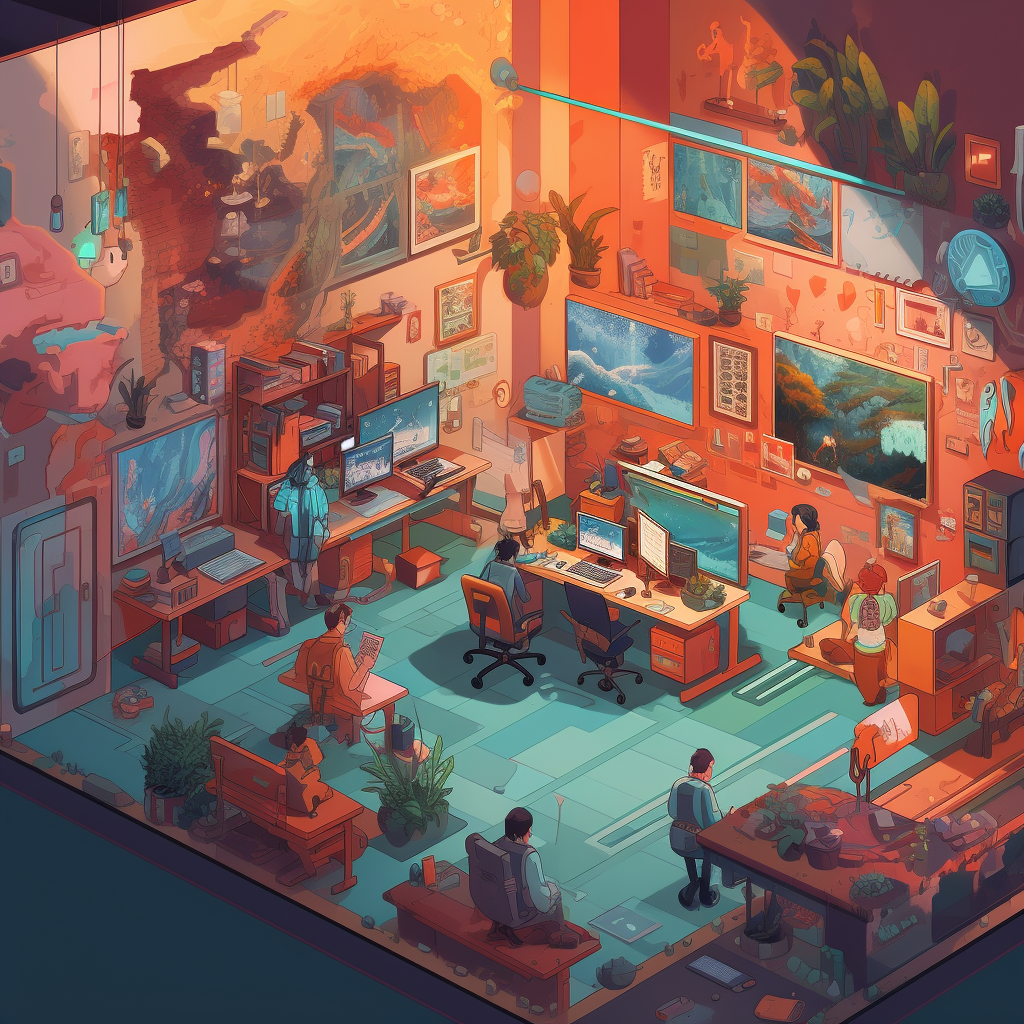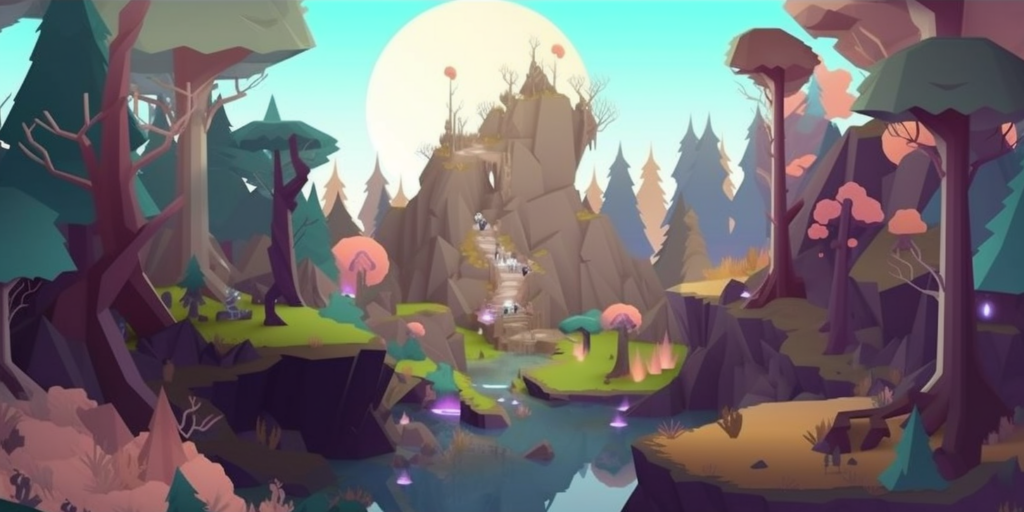Building Online Game Communities: How to Foster Engagement

Building a game involves much more then just programming, art, and advertising. To truly craft and launch a title, community plays an essential part of the process. While your game might be high in quality, it will not last if it does not have a dedicated fan base to support it. Even on Moddio, building online communities and fostering player engagement is the key to a successful and long surviving game.
Understanding Online Game Communities
What are online game communities?
Online game communities are networks of players who come together to share their passion for a specific game. These communities often consist of forums, chat rooms, social media groups, and in-game communication channels where players can discuss strategies, share content, and build lasting friendships. While these communities may vary from game to game, they all share a common thread of a love for gaming.
Importance of online game communities
A strong community can significantly improve a player’s experience and increase a game’s longevity. Engaged players are more likely to spend time and money on the game, recommend it to their friends, and contribute to the growth of the player base. In addition, they will continue to advertise and invest in the game making them the foundation for any successful title on Moddio or any other platform.
Creating a Welcoming Environment
Setting community guidelines
Establishing clear community guidelines is essential for fostering a positive and inclusive environment. These guidelines should outline the expected behaviors, define unacceptable actions, and outline the consequences for rule violations. Remember, it is important that your community respect the rules and that the rules are enforced. If clear boundaries are not set, your community could be quickly on the decline towards negative toxic behavior.
Encouraging positive behavior
Promote positivity by recognizing and rewarding players who exhibit good sportsmanship, helpfulness, and kindness. This can be done through in-game rewards, special titles, or public acknowledgment. Simple call outs and reminders that you are watching can do a lot towards encouraging positive behavior among most users.
Handling toxic players
Toxic players can ruin the experience for others, so it’s crucial to address their behavior swiftly. Providing tools for reporting and muting disruptive players, as well as implementing strict penalties for rule violations, can help maintain a positive atmosphere.
Fostering Communication and Interaction
Implementing chat and messaging features
In-game chat and messaging features allow players to communicate and interact with one another. Providing these tools can help foster friendships and facilitate collaboration.
Encouraging user-generated content
User-generated content, such as fan art, guides, and videos, can contribute to a thriving community. Encourage players to share their creations on forums or social media channels, and consider showcasing exceptional work within the game itself.
Hosting community events
Organizing in-game events, contests, and tournaments can engage players and bring the community together. These events can also provide unique rewards and opportunities for players to show off their skills.
Supporting Player Collaboration
Developing in-game collaboration tools
Providing tools for players to collaborate in-game, such as group-finding features, can strengthen community bonds. These tools should be accessible and intuitive, encouraging players to work together towards common goals.
Facilitating group activities
Group activities, such as raids or dungeons, can be a significant part of the gaming experience. Designing these activities to encourage teamwork and communication can lead to strong, engaged communities.
Encouraging Feedback and Improvement
Collecting player feedback
Gathering feedback from your community is vital for improving both the game and the community itself. Encourage players to share their thoughts through surveys, forums, and social media channels.
Using feedback to improve the game and community
Once you’ve collected player feedback, use it to identify areas for improvement. Addressing these concerns and communicating your plans can demonstrate your commitment to the community and its well-being.
Providing Incentives for Participation
Implementing reward systems
Incentivize community participation by offering rewards for activities such as completing community challenges, helping new players, or contributing to discussions. These rewards can include in-game currency, exclusive cosmetics, or other bonuses.
Recognizing top contributors
Identify and celebrate the most dedicated and helpful community members. Showcasing their contributions and providing them with exclusive perks can encourage others to follow in their footsteps.
Table of Contents
Additional Strategies for Online Game Communities
Promoting Cross-platform Play
Allowing cross-platform play
Enabling cross-platform play can unite players across different devices, creating a more diverse and inclusive community. This can lead to a larger player base and a broader range of experiences within the community.
Optimizing the game for various devices
To facilitate cross-platform play, ensure that your game is optimized for different devices, including PCs, consoles, and mobile platforms. This can help provide a consistent and enjoyable experience for all players, regardless of their preferred platform.
Leveraging Social Media
Integrating social media with your game
Incorporating social media features into your game, such as sharing in-game achievements or content directly to social platforms, can help boost community engagement. Players can use these features to connect with others, show off their accomplishments, and invite new players to join the game.
Establishing a strong social media presence
Develop a strong social media presence for your game by posting regular updates, engaging with players, and sharing user-generated content. This can help foster a sense of community and encourage players to be more active both in-game and on social media.
Continuously Updating and Expanding the Game
Regularly releasing new content
Frequent updates and new content can keep players engaged and excited about the game. This can include new levels, game modes, characters, or items that players can use and interact with.
Listening to the community for content ideas
When planning updates and new content, consider the community’s input and ideas. Incorporating their suggestions can make players feel heard and valued, strengthening their connection to the community.
Embracing Community Moderators
Recruiting community moderators
Having dedicated community moderators can help maintain a positive environment and enforce community guidelines. Select moderators from active and trusted community members, who understand the community’s values and are willing to help maintain them.
Training and supporting moderators
Provide training and support to your moderators, ensuring they have the necessary tools and resources to enforce community guidelines effectively. Regularly communicate with them to address any concerns or issues and keep them informed about any changes to community policies.
By implementing these additional strategies, such as promoting cross-platform play, leveraging social media, continuously updating the game, and embracing community moderators, you can further enhance the online game community experience and foster long-lasting engagement. Building and maintaining an engaged online game community requires understanding your players’ needs and providing them with opportunities to connect, collaborate, and contribute.
By creating a welcoming environment, fostering communication and interaction, supporting collaboration, encouraging feedback, and offering incentives for participation, you can create a vibrant community that enhances the overall gaming experience.
Frequently Asked Questions (FAQs)
How can I create a welcoming environment for my online game community?
Set clear community guidelines, encourage positive behavior, and address toxic players promptly.
What are some ways to foster communication and interaction in my community?
Implement chat and messaging features, encourage user-generated content, and host community events.
How can I support player collaboration in my game?
Develop in-game collaboration tools and facilitate group activities that encourage teamwork.
Why is it important to encourage feedback and improvement in my community?
Gathering and addressing player feedback helps improve both the game and the community, demonstrating your commitment to the players’ experience.


